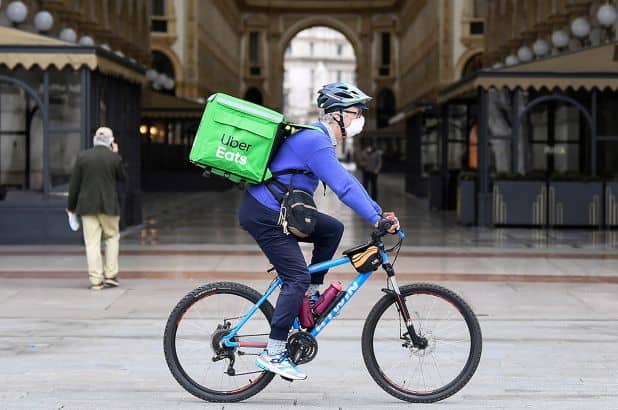
Marina Multhaup is a Senior Associate at Barnard, Iglitzin & Lavitt—a law firm in Seattle, Washington, that represents unions, and a former student member of the Labor and Employment Lab at Harvard Law.
A recent study from the Federal Reserve Bank of St. Louis found a significant and growing racial wealth gap between Black and white millennials. In 2016, the St. Louis Fed found that a typical millennial household had 40% less wealth than previous generations had at the same age. Re-visiting millennials three years later, the Study found that some millennials made “dramatic progress” after 2016, amassing wealth gains of over 80% in a three-year period. But, the study found that Black millennials and non-college-educated millennials did not receive the same bump. Today, the typical white millennial family has about $88,000 in wealth compared to the typical Black millennial family which has about $5,000 in wealth. While white millennial families were able to make up the difference between their wealth compared to previous generations in just three years, Black millennials fell further and further behind. As NPR notes, “despite racial progress in politics and culture, most Black Americans have yet to see tangible wealth gains.” Cited factors contributing to this disparity include white generational wealth, student debt disproportionately affecting Black students, and home ownership rates.
2,000 graduate students at New York University went on strike on Monday evening. The grad students, organized with the UAW, are demanding higher wages, better benefits, and that the New York Police Department be removed from campus. The union has been bargaining with NYU for over ten months, with the union offering to make significant cuts to their demands without the same willingness from NYU. For instance, the union reduced its wage demand down to $32/hour from their original demand of $48/hour. NYU offered $21/hour—up $1 from the current $20/hour pay. On Monday, NYU’s president Andrew Hamilton sent a letter to the parents of striking graduate students, describing the strike as “unwarranted,” “regrettable,” and “unreasonable.”
Food delivery workers in New York City could get some relief from a slate of legislative proposals coming from City Council after months of negotiations, protests, and grueling work. The Los Deliveristas Unidos, a collective of mostly immigrant food delivery workers, have been organizing for months to secure basic workplace protections. Bathroom access is a huge issue—food delivery workers report that restaurants deny them access to bathrooms, and food delivery apps don’t provide bathrooms, so delivery workers are forced into uncomfortable and potentially unhealthy situations. One study found that 67% of delivery workers have been denied bathroom access by restaurants in the past year. One driver reported that restaurants tell him the bathroom is for “customers only,” which didn’t make sense to him: “Don’t I count? Who’s the one making sure your customer gets the food?” City council members told THE CITY that they are introducing a legislative package on Thursday to address food delivery workers’ health and safety. The bills are expected to include measures to raise wages, measures to ensure that tips make it to drivers, provisions that force restaurants and bars to allow drivers bathroom access or face fines, and provisions that allow workers to set distance limits on their travel and to select their own routes. Food delivery workers have been deemed “essential” and have been relied upon to deliver our food throughout the pandemic. Hopefully they will soon be able to use the bathroom at work.






Daily News & Commentary
Start your day with our roundup of the latest labor developments. See all
February 16
BLS releases jobs data; ILO hosts conference on child labor.
February 15
The Office of Personnel Management directs federal agencies to terminate their collective bargaining agreements, and Indian farmworkers engage in a one-day strike to protest a trade deal with the United States.
February 13
Sex workers in Nevada fight to become the nation’s first to unionize; industry groups push NLRB to establish a more business-friendly test for independent contractor status; and UFCW launches an anti-AI price setting in grocery store campaign.
February 12
Teamsters sue UPS over buyout program; flight attendants and pilots call for leadership change at American Airlines; and Argentina considers major labor reforms despite forceful opposition.
February 11
Hollywood begins negotiations for a new labor agreement with writers and actors; the EEOC launches an investigation into Nike’s DEI programs and potential discrimination against white workers; and Mayor Mamdani circulates a memo regarding the city’s Economic Development Corporation.
February 10
San Francisco teachers walk out; NLRB reverses course on SpaceX; NYC nurses secure tentative agreements.